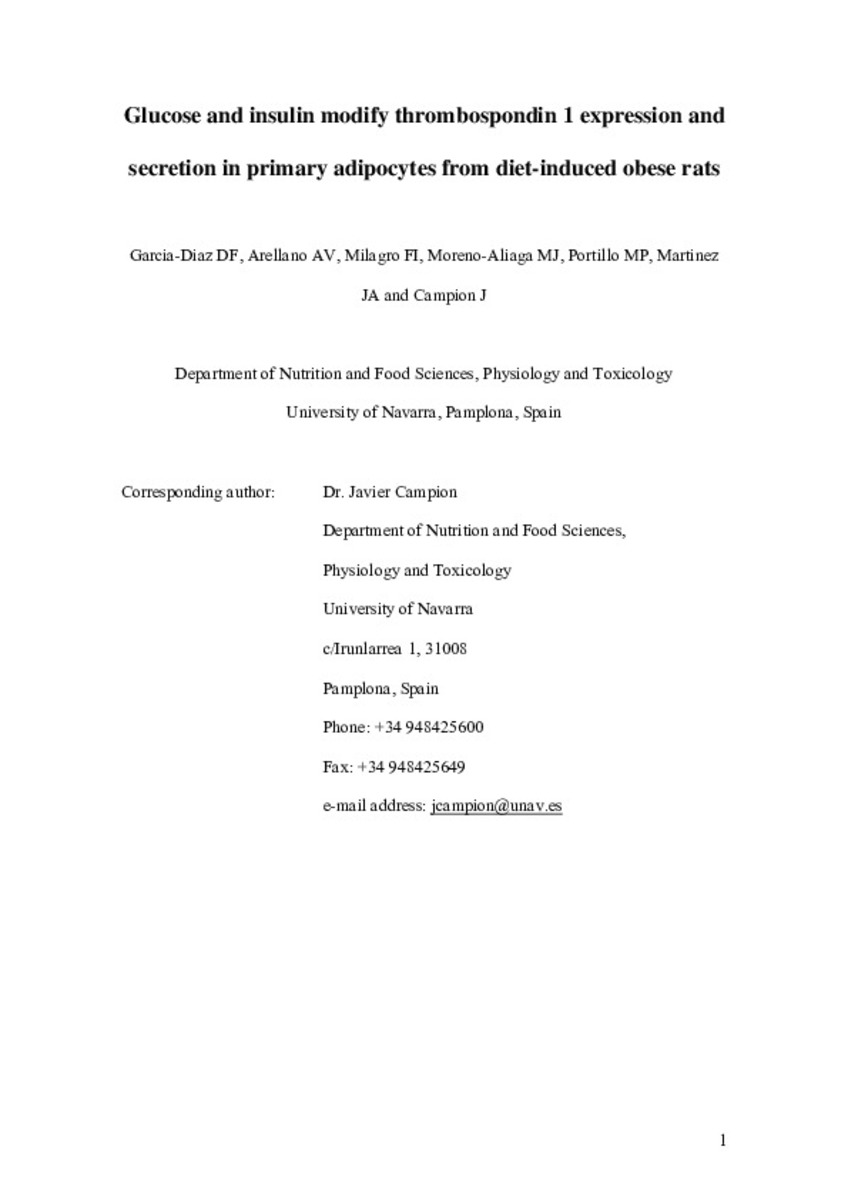Glucose and insulin modify thrombospondin 1 expression and secretion in primary adipocytes from diet-induced obese rats.
Keywords:
Diet-induced obesity
Adipokine
Cell culture
Adipose tissue
Citation:
Garcia-Diaz DF, Arellano AV, Milagro FI, Moreno-Aliaga MJ, Portillo MP, Martinez JA, et al. Glucose and insulin modify thrombospondin 1 expression and secretion in primary adipocytes from diet-induced obese rats. J Physiol Biochem 2011 Sep;67(3):453-461.
Statistics and impact
0 citas en

0 citas en

Items in Dadun are protected by copyright, with all rights reserved, unless otherwise indicated.








